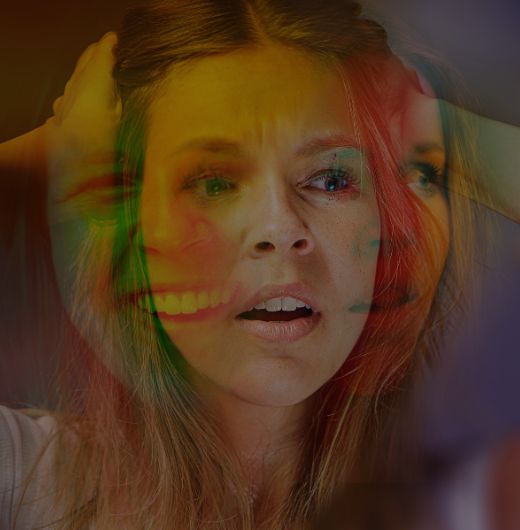Bipolar II disorder is a mental health condition marked by alternating periods of hypomania and depression. It significantly affects mood, energy, and daily functioning.
Bipolar II disorder can have a significant impact on an individual’s daily life, relationships, and work. Characterized by alternating episodes of hypomania and depression, this condition can disrupt normal functioning. While it is often considered less severe than Bipolar I disorder, the effects can still be substantial.
With the right support and treatment, individuals with Bipolar II disorder can manage their symptoms and lead fulfilling lives. If you’re struggling with the emotional or practical challenges of Bipolar II, a Hamilton long-term disability lawyer can help you understand your rights and navigate any legal complexities you may encounter.
What is Bipolar II Disorder?
Bipolar II disorder is a mental health condition characterized by alternating periods of depression and hypomania. Hypomania is a milder form of mania and does not lead to the full-blown manic episodes seen in Bipolar I disorder. Despite being considered a less severe form of bipolar disorder, Bipolar II can still significantly affect a person’s life, including their ability to work and maintain relationships.
In Canada, Bipolar II disorder affects an estimated 0.57% of the population, with no significant difference in prevalence between sexes, according to the National Institutes of Health (NIH). While the mood swings associated with Bipolar II are less intense than those in Bipolar I, they can still cause significant disruptions. Individuals with Bipolar II experience alternating episodes of elevated mood (hypomania) and depressive episodes, both of which can be difficult to manage without appropriate treatment.
The key difference between Bipolar I and Bipolar II is the severity of the manic episodes. Bipolar II disorder does not involve full manic episodes, but hypomania can still lead to impulsive behavior, emotional challenges, and difficulties in work and personal relationships. Even though it may seem like a milder form of the condition, it requires appropriate diagnosis and treatment to ensure that individuals can lead a stable, healthy life.


Symptoms of Bipolar II Disorder
The core symptoms of Bipolar II disorder are the shifts between hypomanic episodes and depressive episodes. These mood swings can be abrupt and unpredictable, creating challenges for both the person experiencing them and their loved ones.
Hypomanic Episodes
Hypomania is characterized by elevated mood, increased energy, and a heightened sense of activity. While not as intense or disruptive as mania, hypomanic episodes can still affect daily life. These episodes often bring a temporary burst of productivity or creativity but may also result in poor decision-making and impulsive actions.
Symptoms of hypomanic episodes include:
- Elevated mood: A person may feel unusually euphoric or irritable.
- Increased energy and activity: People may experience heightened activity levels and an overwhelming need to be productive, even if it leads to exhaustion.
- Racing thoughts: The mind may feel like it’s moving too quickly, making it difficult to focus.
- Increased talkativeness: People experiencing hypomania may speak more quickly and excessively.
- Reduced need for sleep: Individuals may feel refreshed after just a few hours of sleep or may go without sleep entirely.
- Impulsive behaviors: Risk-taking behaviors, such as spending sprees or engaging in dangerous activities, may occur.
While hypomanic episodes are less severe than manic episodes, they can still lead to difficulties in personal, social, or professional settings. These periods can also transition into depressive episodes, creating a cycle of mood instability.
Depressive Episodes
The depressive episodes in Bipolar II disorder are often characterized by the same symptoms as clinical depression. These episodes are marked by extreme feelings of sadness, hopelessness, and fatigue, and they can significantly impair a person’s ability to function.
Symptoms of depressive episodes include:
- Persistent sadness or emptiness: A person may feel overwhelmingly sad or empty without any clear reason.
- Loss of interest in activities: Things that once brought joy or pleasure may no longer seem appealing.
- Extreme fatigue or low energy: Even basic tasks may feel exhausting or overwhelming.
- Difficulty concentrating: Cognitive functions may slow down, making it hard to focus or make decisions.
- Changes in appetite or weight: There may be significant weight loss or gain, depending on the individual.
- Sleep disturbances: This can include insomnia or excessive sleeping.
- Feelings of guilt or worthlessness: There may be an overwhelming sense of inadequacy or guilt.
- Suicidal thoughts or actions: In severe cases, people with depressive episodes may contemplate or attempt suicide.
For those with Bipolar II disorder, depressive episodes can be particularly difficult to manage, as they often lead to significant impairments in daily functioning and can result in feelings of hopelessness.
Causes and Risk Factors of Bipolar II Disorder
The causes of Bipolar II disorder are not entirely understood, but it is believed that a combination of genetic, biological, and environmental factors contribute to the onset of the condition.
Genetic Factors
There is a strong genetic component to Bipolar II disorder. Individuals with a family history of bipolar disorder, major depression, or other mood disorders are at an increased risk. Studies have shown that certain genetic markers may predispose individuals to developing Bipolar II disorder, though the specific genes involved are still being studied.
Biological Factors
Research suggests that imbalances in neurotransmitters, the chemicals in the brain that regulate mood, may play a role in Bipolar II disorder. Neurotransmitters like serotonin, dopamine, and norepinephrine are responsible for regulating mood and emotions. Disruptions in the production or functioning of these chemicals can contribute to the mood swings seen in individuals with Bipolar II disorder.
Environmental Factors
Stressful life events, such as a job loss, relationship breakdowns, or trauma, can trigger or exacerbate symptoms of Bipolar II disorder. Environmental factors like drug and alcohol abuse can also interfere with the management of the disorder, making it harder to maintain stability.
People with rapid cycling bipolar disorder, a form of Bipolar II in which mood episodes occur more frequently, may find that environmental stressors significantly affect the severity and duration of their episodes.
Treatment Options for Bipolar II Disorder
While Bipolar II disorder is a lifelong condition, it can be managed effectively with the right treatment plan. Treatment typically involves a combination of medications, psychotherapy, and lifestyle changes to help stabilize mood and reduce the frequency and intensity of episodes.
Medications
The goal of medication is to balance mood swings and prevent episodes of hypomania and depression. There are several classes of medication used in the treatment of Bipolar II disorder.
Common medications for treating Bipolar II disorder include:
- Mood stabilizers: Medications like lithium are used to control both hypomanic and depressive episodes.
- Antidepressants: These drugs are used to manage depressive symptoms, although they must be carefully monitored to avoid triggering a hypomanic episode.
- Antipsychotic medications: Used in more severe cases or when other medications are not effective, these drugs help manage symptoms of hypomania.
- Antianxiety medications: Many people with Bipolar II disorder also experience anxiety, and these medications can help manage those symptoms.
Each individual may respond differently to medications, so it’s important to work closely with a healthcare provider to find the right combination.
Psychotherapy
Psychotherapy is an important part of treatment for Bipolar II disorder. It helps individuals understand their condition, recognize the early warning signs of mood changes, and develop strategies to cope with the challenges of the disorder.
Types of therapy include:
- Cognitive Behavioral Therapy (CBT): This type of therapy helps individuals change negative thought patterns that contribute to depressive episodes.
- Interpersonal and Social Rhythm Therapy (IPSRT): This therapy focuses on regulating daily routines, such as sleep patterns, which can help reduce mood swings.
- Family therapy: Family therapy provides support for loved ones, teaching them how to better understand and support the person living with Bipolar II disorder.
Therapy can be incredibly effective for helping individuals manage their symptoms and improve their quality of life.
Lifestyle Adjustments
In addition to therapy and medication, lifestyle changes play an essential role in managing Bipolar II disorder. Stability in daily life can help reduce the frequency and severity of mood episodes.
Tips for managing Bipolar II disorder include:
- Maintain a regular sleep schedule: Sleep is a crucial factor in regulating mood, and maintaining a consistent sleep schedule can help prevent episodes.
- Exercise regularly: Physical activity can improve mood, reduce stress, and help regulate sleep patterns.
- Eat a healthy diet: Nutrition plays a key role in overall well-being and can help stabilize mood.
- Avoid drugs and alcohol: Substance use can interfere with medications and trigger mood episodes.
- Practice stress management techniques: Learning to manage stress through techniques like mindfulness or meditation can help maintain emotional balance.
Coping with Bipolar II Disorder
Coping with Bipolar II disorder involves more than just treatment; it requires a commitment to making lifestyle adjustments, seeking support, and regularly monitoring mental health. By working with healthcare professionals and developing a support network, individuals can better manage their symptoms and lead fulfilling lives.
Support and Resources
Support from friends, family, and mental health professionals is critical for managing Bipolar II disorder. Support groups can also provide a sense of community for those struggling with the disorder, offering shared experiences and coping strategies.
How a Hamilton Long-Term Disability Lawyer Can Help with Bipolar II Disorder
Living with Bipolar II disorder can significantly affect multiple areas of an individual’s life, including their ability to work and maintain stable relationships. For many, managing the emotional and physical toll of the disorder is challenging enough, but when it starts to affect their professional life, navigating legal rights and options becomes essential.
A Hamilton long-term disability lawyer can play a crucial role in supporting individuals with Bipolar II disorder who are dealing with employment-related issues or struggling with the financial implications of the condition. Understanding your legal rights is important to ensure that you receive the benefits and accommodations you’re entitled to, especially if your condition is interfering with your ability to perform at work.
Navigating Disability Claims
For individuals with Bipolar II disorder, the financial burden of the condition can add another layer of stress. When symptoms, such as extreme mood swings or depressive episodes, affect a person’s ability to work, long-term disability benefits can help alleviate some of the financial pressure. A Hamilton long-term disability lawyer can assist you in navigating the process of applying for disability benefits, ensuring that all necessary documentation is submitted and that you meet the eligibility requirements set by insurance companies and employers.
Disability insurance claims are often complex, and insurance providers may initially deny or minimize claims, even for individuals with legitimate conditions. A Hamilton long-term disability lawyer specializing in long-term disability cases can fight for your rights, helping you appeal a denial and ensuring that you receive the compensation you’re entitled to under the terms of your policy.
Addressing Workplace Discrimination
Individuals with Bipolar II disorder may also face workplace discrimination due to their condition. Employees are protected from discrimination based on mental health under the Ontario Human Rights Code, and employers are required to provide reasonable accommodations to employees with disabilities, including those related to mental health conditions like Bipolar II disorder.
A Hamilton long-term disability lawyer can help individuals understand their rights under this code and advocate for the necessary accommodations at work, such as adjusting work hours, modifying workloads, or allowing for flexible schedules. If discrimination occurs, the lawyer can help pursue legal action, which may include filing a complaint with the Ontario Human Rights Tribunal.
Managing Employment Benefits and Severance
Bipolar II disorder can also affect your ability to receive fair severance pay or other employment benefits after job loss. A Hamilton long-term disability lawyer can assist in reviewing your employment contract, ensuring that you receive any benefits you’re entitled to, especially if the termination is linked to your condition.
If your ability to work is impaired due to Bipolar II disorder, and you’re facing wrongful termination or constructive dismissal, legal advice is essential to ensure that your rights are fully protected and that you receive the severance or compensation you’re owed.
The Importance of Early Legal Support
The sooner you consult with a Hamilton long-term disability lawyer, the better your chances of securing the benefits and support you need. Whether you’re trying to apply for long-term disability benefits, challenging workplace discrimination, or seeking advice on severance packages, early intervention can help ensure that you receive the proper legal guidance at every step of the process. Bipolar II disorder can be a lifelong condition, but with the right legal support, individuals can safeguard their future and better manage the challenges they face at work and in life.
I’m rating 5 stars because of how easy, fast, friendly the process was to do my cases! I highly recommend Lalande personal injury lawyers as you can truly count on them to get the job done and get the justice you deserve! I hope you find this review useful as they truly were life savers! Thank you again guys! You guys are truly the best in the business! – Jay Toronto
Take the First Step Toward Stability and Support
Bipolar II disorder is challenging, but with the right treatment and support, it’s absolutely manageable. If you or a loved one is facing the complexities of this condition, don’t wait to reach out for professional help. The earlier you seek guidance, the sooner you can regain control over your life and well-being.
Whether you’re navigating employment law issues, experiencing workplace discrimination, or need expert advice on severance pay or termination letters, the right support is crucial. Let us help you understand your rights and provide the assistance you need to move forward with confidence.
Contact us today at 905-333-8888 or fill out our confidential contact form at Injured.ca Contact. Our Hamilton long-term disability lawyer is here to offer compassionate, knowledgeable support, without cost or obligation. Your path to clarity and peace of mind starts now.
Article FAQs:
A Hamilton long-term disability lawyer can assist with disability claims, workplace accommodations, and handling legal issues like wrongful termination and severance pay related to Bipolar II.
Bipolar II disorder is characterized by hypomanic episodes, including elevated mood and increased energy, and depressive episodes, which involve feelings of sadness, low energy, and lack of interest in activities.
Bipolar II disorder is believed to result from a combination of genetic, biological, and environmental factors. Stressful life events, such as trauma or job loss, can trigger or worsen symptoms.
Treatment for Bipolar II disorder typically includes medications like mood stabilizers and antidepressants, psychotherapy such as Cognitive Behavioral Therapy (CBT), and lifestyle changes to stabilize mood and reduce episodes.


